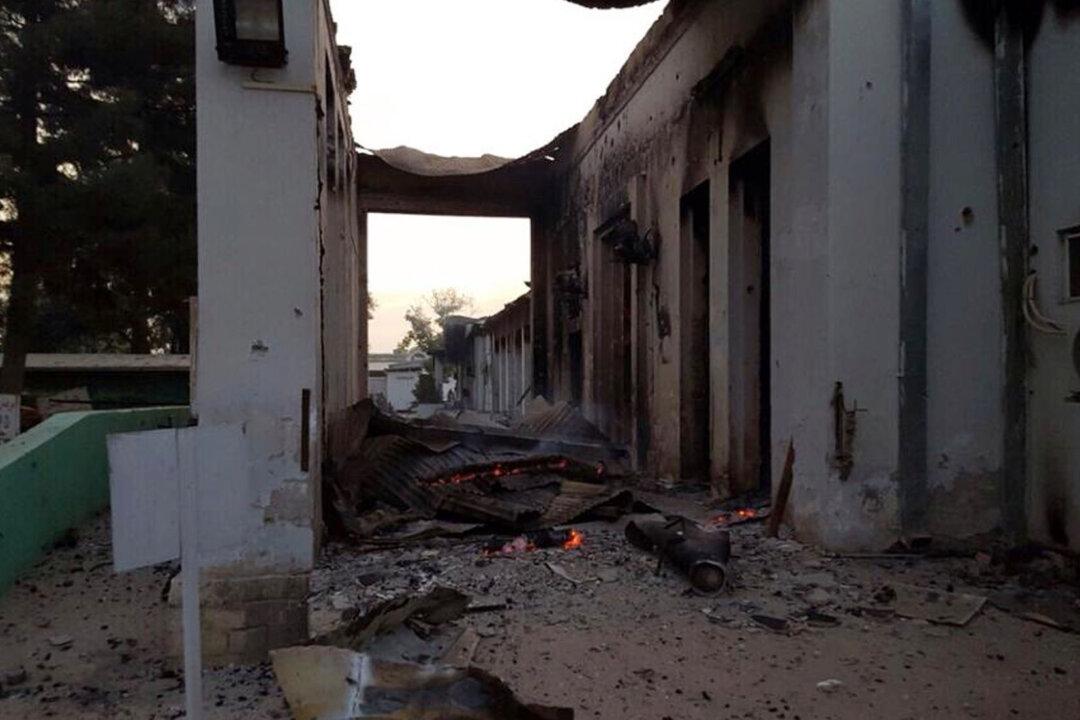KABUL, Afghanistan—The International medical charity Doctors Without Borders said on Sunday, Oct. 4, that it had withdrawn from the northern Afghan city of Kunduz after a deadly airstrike destroyed its hospital and killed 22 people, as the U.S. and Afghan governments vowed to get to the bottom of the carnage.
The humanitarian crisis in the city, which briefly fell to the Taliban last week before the government launched a counteroffensive, has been growing increasingly dire, with shops shuttered because of ongoing fighting and roads made impassable by mines planted by insurgents.
“All critical patients have been referred to other health facilities and no MSF staff are working in our hospital,” said Kate Stegeman, the communications manager for Doctors Without Borders, using the French acronym for the organization.
“Some of our medical staff have gone to work in two hospitals where some of the wounded have been taken,” she added.






